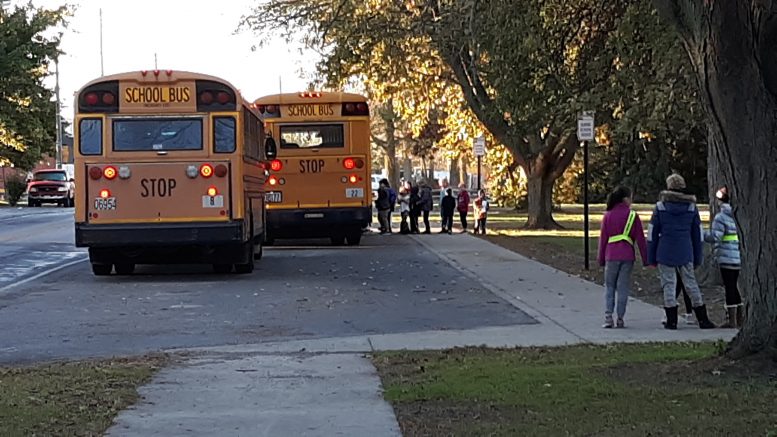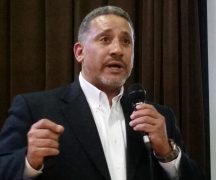By JAN LARSON McLAUGHLIN
BG Independent News
Bowling Green Board of Education is putting the district’s pipeline tax revenue into its buildings and buses.
The board voted in May of 2018 to put revenue from the new Rover pipeline into its capital projects budget – not to be used on daily operations.
“It has to be used for permanent improvements,” said District Treasurer Cathy Schuller.
That means the money can only be spent on items that have a lifespan of five years or more.
“I think the board was prudent in their decision to establish this fund because of the cost of these items,” Schuller said this week.
Bowling Green City Schools was projected to get $800,000 a year from the Rover pipeline project. When the district received its first annual installment in February, the amount was actually $758,686, Schuller said.
The district will get tax revenue each year from the pipeline, with the amount fluctuating with property tax, annual depreciation, and possible appeals by the pipeline.
“There is no guarantee on how long it lasts,” at the current amount, Schuller said.
So far, the district has spent the pipeline funding on the following:
- $171,038 for two new school buses.
- $21,179 for the replacement of the high school gym floor after a leaky pipe damaged the floor.
- $1,600 for the monthly lease of modular classrooms.
That leaves the district with $557,071 remaining from the first installment of the tax revenue.
Come next year, the amount paid to Bowling Green City Schools may double, since a second Rover pipeline is now in operation.
“I’m hoping that’s the case,” Wood County Auditor Matt Oestreich said about the possible doubling of the tax revenue. His office should know more in October on the revenue from the second line.
Nexus pipeline also will soon be paying tax revenue in Wood County. But the line passes north of the Bowling Green district and will only benefit Otsego and Eastwood schools.
“We’re hoping these two pipelines make a huge impact in the county,” Oestreich said, since public utilities always pay full property tax millage. The county’s general fund and schools will benefit, plus any entities that have tax levies such as the county parks, libraries, the senior center and Wood Lane.
The exact amount of pipeline tax revenue is never certain. Rover pipeline did not appeal its tax bill this year, but that right to appeal is offered annually, Oestreich said.
“They can appeal next year, potentially they can do that every year,” he said.
Pipelines continue to pay local property taxes throughout a 30-year depreciation cycle. So each year of operation, the amount paid in taxes will decrease, finally bottoming out at 15 percent of the initial amount, Oestreich said.





